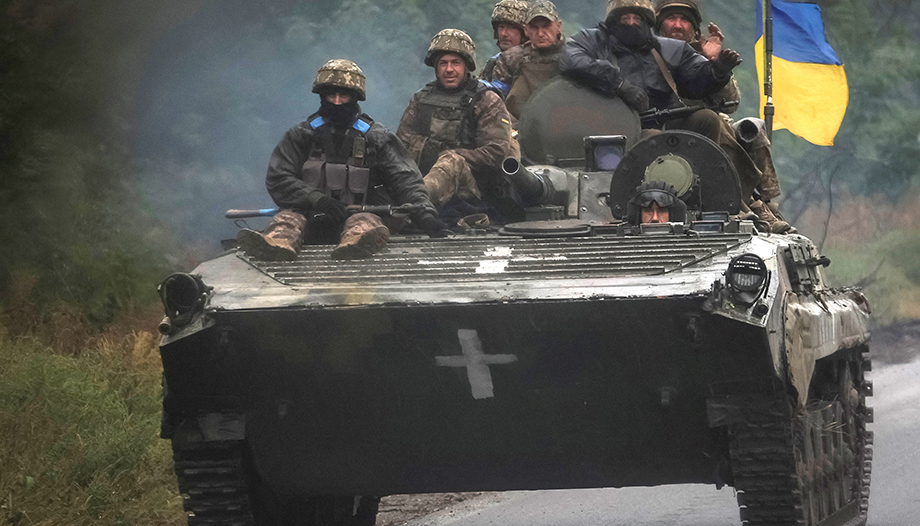Original text of the article in Italian
In a few days, seven months of senseless conflict will be over in Ukraine which is causing destruction and death, as well as putting the entire world under siege due to the economic and social consequences of the war.
It is not that there are no wars in other parts of the world - as has been repeatedly pointed out by the Pope FrancisBut we feel this clash all the more acutely both because it takes place on our doorstep and because it affects the material day-to-day of our lives.
Since the beginning of the war unleashed by Russia, Pope Francis has called for an end to the hostilities more than 80 times and has described the fighting as monstrosity meaningless, from heresy... of madness. He insisted on the path of dialogue without further pretensions, and that Christians implore God for the gift of peace through constant prayer.
Dialogue
In his press conference with journalists on his return from Kazakhstan, he said that, even if it costs money, it is necessary to "talk" with the enemy, because the priority is the lives to be saved and the end of the fighting. Then there will be time to settle things according to justice, assessing the responsibilities of each one, but the urgent thing is to stop as soon as possible.
According to the latest news from the war zones, Ukraine seems to be regaining part of the territories previously seized by the Russian army. Although this scenario may represent an element of optimism towards the conclusion of the conflict with the complete withdrawal of the occupiers, it cannot be ruled out that the opposing side is (re)preparing an even more violent offensive. Let us hope not.
Peace builders
At this juncture, an explicit proposal emerges from the Catholic side to reach as soon as possible a definitive peace at least in this area of Eastern Europe. It bears the signature of none other than the president of the Pontifical Academy of Sciences, the Italian Stefano Zamagni, who in this case is the spokesman for the broad magisterium on the call to be "builders of peace". A renowned economist and academic, he was also one of the main collaborators of Pope Benedict XVI in the drafting of the Encyclical Caritas in veritate.
In Italy, Zamagni is also the inspirer and founder of a "Christian-inspired", centrist and popular political group called "Insieme", which places work, family, solidarity and peace at the top of its agenda. For this reason, he has written a long contribution that reviews the steps that led to the conflict, but at the same time establishes some firm points "for a credible peace negotiation".
These are seven points that the author has reason to believe can be "favorably received by the conflicting parties" if the proposal is "properly presented and wisely handled through diplomatic channels."
After all, concludes Zamagni, "peace is not an unattainable goal because war is not something that happens like an earthquake or a tsunami; it is the result of the choice of the people who desire it". And so is peace.
The seven points of the proposal
Here are the seven points of the peace proposal signed by the President of the Pontifical Academy of Sciences:
First: "The neutrality of Ukraine renouncing its national ambition to join NATO, but retaining the full freedom to be part of the EU, with all that that means."
Second: "Ukraine obtains the guarantee of its sovereignty, independence and territorial integrity; a guarantee provided by the 5 permanent members of the UN (China, France, Russia, the United Kingdom and the United States), as well as by the EU and Turkey."
Third: "Russia maintains de facto control of Crimea for several more years, after which the parties seek, through diplomatic channels, a de jure permanent settlement. The local communities enjoy facilitated access both to Ukraine and Russia, as well as freedom of movement of people and financial resources".
Fourth: "Autonomy of the Lugansk and Donetsk regions within Ukraine, of which they remain an integral part, economically, politically and culturally."
Fifth: "Guaranteed access for Russia and Ukraine to the Black Sea ports, for the conduct of normal commercial activities".
Sixth: "Gradual lifting of Western sanctions on Russia in parallel with the withdrawal of Russian troops and armaments from Ukraine."
Seventh: "Establishment of a Multilateral Fund for the Reconstruction and Development of the destroyed and severely damaged areas of Ukraine, a fund to which Russia is called upon to contribute on the basis of predefined criteria of proportionality."









